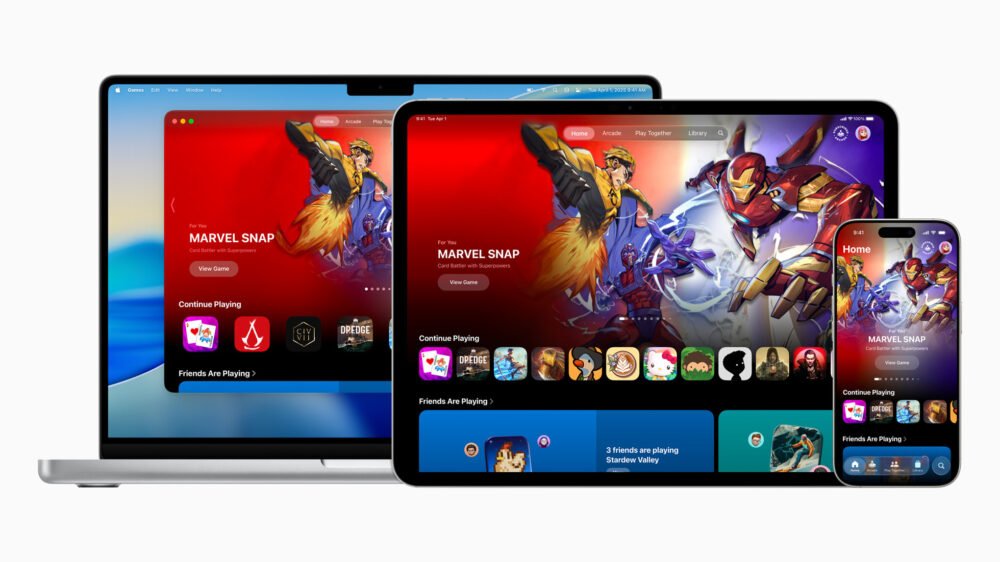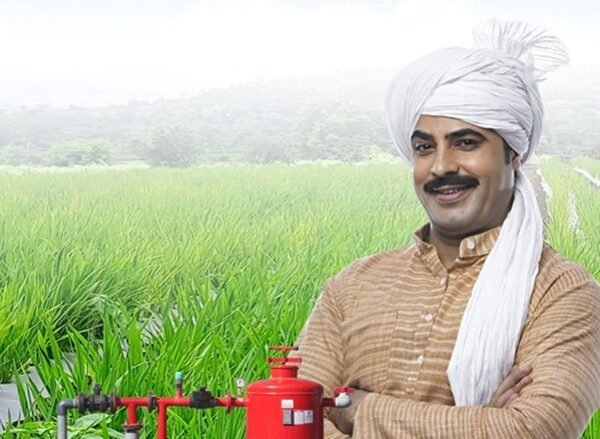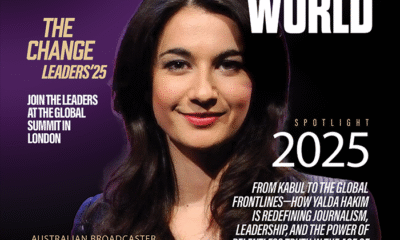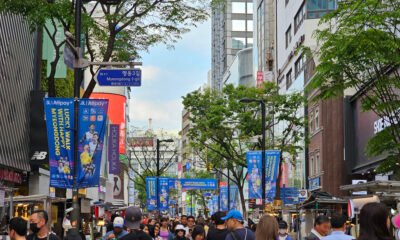Business Story
Remote Work Evolution: How Indian Corporates Are Redefining Workspaces

From shrinking office footprints to reimagined cultures, Indian companies are navigating the hybrid work frontier with innovation and intent.
The Great Reset: India’s Remote Work Awakening
In the aftermath of the pandemic, India’s corporate landscape has undergone a seismic shift. Remote work, once a contingency, has become a cornerstone of operational strategy. Companies across sectors are embracing hybrid models, blending in-office and remote work to foster flexibility and resilience.
This transformation is not merely logistical; it’s cultural. Organizations are re-evaluating traditional norms, prioritizing outcomes over hours, and trust over supervision. The emphasis is on empowering employees, fostering autonomy, and cultivating a results-driven ethos.
Redefining Real Estate: The New Office Paradigm
The shift towards remote work has prompted a reimagining of physical workspaces. Companies are downsizing traditional office spaces, opting for flexible layouts that accommodate collaboration and innovation. Hot-desking, co-working spaces, and satellite offices are becoming prevalent, reflecting a move towards agility and cost-efficiency.
This evolution extends beyond metros. Organizations are establishing hubs in tier-2 and tier-3 cities, tapping into diverse talent pools and reducing overheads. The decentralization of workspaces is fostering inclusivity and driving regional economic growth.

Productivity and Performance: The Hybrid Advantage
Hybrid work models are yielding positive outcomes in productivity and employee satisfaction. By offering flexibility, employees can tailor their work environments to suit individual preferences, leading to enhanced focus and efficiency. The reduction in commuting time contributes to better work-life balance, further boosting morale.
However, this model is not without challenges. Ensuring equitable access to resources, maintaining team cohesion, and preventing burnout require deliberate strategies. Organizations are investing in digital tools, virtual collaboration platforms, and mental health support to address these concerns.
Cultural Transformation: Building Trust and Inclusion
The remote work revolution is catalyzing a cultural metamorphosis within Indian corporates. Hierarchical structures are giving way to flatter, more collaborative frameworks. Leaders are adopting empathetic approaches, focusing on outcomes rather than micromanagement.
Inclusivity is at the forefront, with efforts to ensure that remote employees have equal opportunities for growth and recognition. Regular virtual engagements, transparent communication, and feedback mechanisms are instrumental in fostering a sense of belonging and purpose.
The Road Ahead: Embracing a Hybrid Future
As Indian corporates navigate the complexities of hybrid work, adaptability remains key. Continuous learning, technological integration, and employee-centric policies will define the success of this transition. By embracing change and prioritizing human capital, organizations can build resilient, future-ready work ecosystems.
#HybridWorkIndia
#RemoteWorkRevolution
#FutureOfWork
#WorkplaceTransformation
#DigitalWorkspaces
#EmployeeWellbeing
#FlexibleWorkModels
#OrganizationalCulture
#ProductivityInFocus
#InclusiveWorkplace
Business Story
The Quiet Disruptor: How Yugandhara Lad Is Rewriting the Rules of AI and Immersive Tech

THE C OVER STORY WORLD EXCLUSIVE FEATURE
THE NEXT 100 INNOVATORS REDEFINING GLOBAL TECH
In a world obsessed with AI giants and Silicon Valley hype, Yugandhara Lad, the Asian Powerleader award winner and founder of Virtualyyst, is building a different future—one defined not by technological dominance, but by human-centric empowerment. Her journey from solopreneur to international tech CEO is a masterclass in resilient, compassionate leadership.
If the defining narrative of the last decade in tech was one of disruption—of breaking systems and moving fast—the next chapter is being written by architects. These are the builders who provide the foundations, the tools, and the blueprints for others to create. They are less concerned with building a single, dazzling skyscraper and more with designing the city around it, ensuring it is accessible, sustainable, and alive with possibility.

Yugandhara Lad Virtualyyst
Yugandhara Lad, the Founder and CEO of Virtualyyst and recent recipient of the prestigious Asian Powerleader Award in AI, is precisely this kind of architect. From her remote-first headquarters, which is less a place and more a dynamic network of talent spanning India and the Gulf, Lad is operationalizing a radical vision: to make immersive technology—the bedrock of the metaverse and Web3—profoundly human and universally accessible.
“Our vision has always been clear—to make tech more human and accessible across industries and borders,” Lad states, her strategic clarity cutting through the industry’s buzzword-laden fog. This isn’t a vague mission statement. It’s the operational blueprint for Virtualyyst, a company that began as a solopreneur’s venture and has grown into a thriving enterprise with over 100 client partnerships and consistent revenue growth, now poised to launch an AI Virtual Try-On platform and expand into the UAE, US, and Australian markets.
But Lad’s story, and her leadership, defy the typical tech-founder arc. This is not a tale of gargantuan venture capital funding or a relentless “growth-at-all-costs” mentality. It is a story of grit, adaptability, and a deeply held belief that the true power of technology lies in its ability to uplift, include, and solve real human problems.
The Resilient Pivot: Leadership in Uncertainty
The past 24 months have been a litmus test for tech leaders worldwide, and Lad’s mettle was tested in the crucible of market uncertainty. “During a period of client budget cuts and market uncertainty, we had to rework our product strategies and shift toward more modular, scalable solutions,” she recounts. Where others might have battened down the hatches, Lad leaned into adaptability.
Her leadership enabled a masterful pivot: streamlining operations, expanding global outreach, and strategically engaging new markets in the Gulf. The result wasn’t a miraculous overnight success, but something more sustainable: steady growth fueled by diversified project pipelines and a relentless focus on “tech offerings that solve real-world business needs.” This resilience, executed without fanfare but with immense strategic precision, is a hallmark of her quiet yet potent influence.
Innovation as an Ethos, Not a Patent
Ask Lad about patents and proprietary technology, and she will tell you that for Virtualyyst, innovation is a cultural ethos, not a legal portfolio. “We may not have patents, but innovation is at the heart of how we operate,” she says. This manifests in the development of cutting-edge tools like their AI-powered Virtual Try-On system, but more importantly, in a company culture of “shared ownership.”
At Virtualyyst, innovation is democratized. Interns and junior team members are encouraged to contribute ideas and lead mini-projects. Lad has built an environment where the next groundbreaking idea can come from anywhere, fostering a mindset where looking forward is everyone’s responsibility. This flattens hierarchy and accelerates creativity, making the company itself a prototype of the accessible future it aims to build.
Bridging Worlds: The Cross-Cultural Compass
A key to Lad’s success, and a core reason for her Asian Powerleader recognition, is her exceptional cross-cultural competence. Virtualyyst operates at the nexus of India’s tech dynamism and the Gulf’s ambitious digital transformation agendas. Lad understands that this requires more than just translating a product; it requires cultural translation.
“Operating between India and the Gulf requires more than product adaptation—it demands cultural sensitivity and clear communication,” she notes. Her leadership model prioritizes localized content, flexible engagement models, and a profound respect for regional norms—from adjusting project pacing during Ramadan to tailoring user experience for Arabic-speaking audiences. Her team, hailing from diverse backgrounds, is a living embodiment of this strategy, ensuring that the company’s output reflects thoughtful integration rather than a tone-deaf, one-size-fits-all approach.
The Sustainable, Empathetic Core
In an industry just beginning to grapple with its social and environmental responsibilities, Lad’s leadership is already deeply aligned with ESG principles. For her, sustainability is holistic. Virtualyyst’s fully remote model is a strategic choice that reduces its carbon footprint while championing a revolutionary form of social equity.
It enables a “diverse talent pool, including working mothers, second-career professionals, and students,” Lad explains. This is not a peripheral HR policy; it is central to her business model and moral compass. The company’s “AI for Good” initiatives, like a pro-bono prototype for American Sign Language learning developed with a nonprofit, further cement a legacy of tech empathy over tech exploitation.
Cultivating Legacy: The Leader Who Lifts Others
Perhaps the most powerful dimension of Yugandhara Lad’s story is her origin and her intent. She is a single mother who started her company with “determination and grit” and no financial backing. This personal history directly informs her leadership philosophy and her vision for her legacy.
“My hope is that my journey shows others—especially women—that you don’t need a perfect start to build something meaningful,” she says. At Virtualyyst, this translates into an empowering framework for talent: open access to upskilling, transparent feedback, and a focus on personal growth that has seen interns evolve into project leads and employees supported through personal breaks.
Her brand equity, boasting client retention rates over 85%, is built on this very foundation of “consistency, clarity, and care.” In a world of transactional business, Lad deals in trust.
Yugandhara Lad is not just building a company; she is cultivating an ecosystem. She is an architect who provides the tools for others to build, a leader who measures success by the opportunities she creates, and a visionary who sees technology not as an end in itself, but as a means to a more inclusive, accessible, and human future. Her appearance on this cover is a testament to a new model of power in the tech world—one that is quiet, resilient, empathetic, and undoubtedly powerful.
Business Story
Introducing the Apple Games app: A personalized home for games and playing with friends

Apple Games is a new all-in-one destination for games and playing with friends on iPhone, iPad, and Mac.
At Apple’s Worldwide Developers Conference (WWDC), Apple unveiled Apple Games, an all-new destination designed to help players jump back into the games they love, find their next favorite, and have more fun with friends, turning even single-player games into shared experiences. The Games app makes it easier than ever for players to enjoy all their games in one convenient place and see what’s happening across their games, including major events and updates, so they never miss a moment.

Here’s what developers are saying:
“As my friends have grown up and moved away, I miss hearing about what they’re playing on their phones, and the Games app is a great way I can get a window back into their gaming worlds. The app also helps us seamlessly integrate and extend all of the social community features we’ve built into Puzzmo directly into the center of our player’s existing daily play routine.” — Zach Gage, indie developer and cofounder of Puzzmo
“The introduction of challenges and a new social layer marks a major leap forward for both developers and players. While creators stay focused on gameplay, these features bring people together in just a few taps, effortlessly deepening player engagement — especially important for games like Thronefall.” — Glib Platonov, cofounder of Doghowl Games
“The Games app is going to be a game changer for playing on iPhone, iPad, and Mac. The app makes it easy for us to create moments just for groups of friends. The new challenges feature works great and feels natural for our games on Apple Arcade, including our latest release, WHAT THE CLASH?, and we’ve been having a lot of fun with it!” — Tim Garbos, creative director and cofounder of Triband.
The Games app is also the best way to experience Apple Arcade, Apple’s subscription service with more than 200 award-winning and highly rated games for the whole family, including Hello Kitty Island Adventure, Sneaky Sasquatch, and Mini Motorways.

Launch Favorite Games, Discover New Ones
The Games app allows players to see all the games they have ever downloaded from the App Store for their iPhone and iPad, and brings together all the games they have on Mac.

They can connect any compatible game controller for easy navigation around the app and to launch right into their games. Players can explore personalized recommendations based on games they’ve played, games their friends are playing, and games supporting Game Center features, that can be played together.

Editorial collections also appear in the app to help players find new games, including some of the most exciting games on the App Store, such as Balatro, Crashlands 2, and DREDGE. If they are an Apple Arcade subscriber, players will see curated collections of the best games included in the catalog that help them get the most out of their subscription.

Play Together
Players now have all their Game Center friends and groups they’ve played with in one place, so they can easily enjoy their games together. They can see their shared gaming history, compare achievements, and send friends invite links and party codes using any messaging app, bringing them right into a competition or multiplayer match.

The Games app introduces challenges, a new way to compete with friends in score-based showdowns. Developers that have Game Center leaderboards for their games can add these unique challenges that are catered to a smaller group of friends. Challenges can turn single-player games into shared experiences with friends, giving them even more ways to rally a group, crown a winner, and have a rematch.
- A Play Together challenge displayed on iPhone 16 Pro.
- The leaderboard after a challenge between friends in the Apple Games app displayed on iPhone 16 Pro.


- previous
- next
Players can invite friends to challenges by selecting their friends or contacts. Whether competing to see who can survive the most waves of enemies in Thronefall, or who can rack up the highest score in each week’s featured course in Skate City: New York, challenges unlock a whole new level of friendly competition.
Stay Up to Date with In-Game Events
The Games app introduces new features to help developers keep their players in the know about the latest game updates and can’t-miss events. Game pages in the app come to life, highlighting the latest activity for that specific game. Players can see what’s most relevant to them and the games they’re actively playing, front and center, like updates, live events, and timely activity from their friends.
Availability
The Games app is available for testing starting today through the Apple Developer Program at developer.apple.com, and a public beta will be available through the Apple Beta Software Program next month at beta.apple.com. The Games app will be released with the launch of iOS 26, iPadOS 26, and macOS Tahoe 26 this fall as a free software update. Features are subject to change. Some features may not be available in all languages or regions, and availability may vary due to local laws and regulations. For more information about availability, visit apple.com.
Business Story
Mahindra EPC enables savings of 262 Crore Litres of Water and 8.4 MU of Energy in FY25

Aims to create a positive impact based on water and power management systems such as drip and sprinkler irrigation and other AgTech solutions Part of the Mahindra Group’s commitment to create a positive impact on society and the environment
Mahindra EPC Irrigation Limited, a pioneer in micro irrigation in India, has enabled savings of an estimated 262 crore litres of water and 8.4 MU (million units) of energy in FY’25. With a commitment to land restoration and drought resilience, Mahindra EPC achieved this feat through its customized micro irrigation systems, community irrigation and agricultural water management projects.
This achievement is an outcome of Mahindra EPC’s broader effort to “Do More with Less” and “Rejuvenating Nature”. This is a key pillar of Mahindra Group’s Sustainability Mandate and aims to safeguard natural resources and play a meaningful role in climate action.
Commenting on the achievement, Ramesh Ramachandran, Managing Director – Mahindra EPC Irrigation Ltd., “Putting farmers first, at Mahindra EPC we aim to drive widespread adoption of micro irrigation. With this milestone we not only enabled significant water savings, but also energy savings, all while continuing to make Indian farming more resilient. Underlining our dedication to environmental stewardship and farmer prosperity, this milestone aligns with the government’s goal of ‘Per Drop, More Crop’, as well as that of the Mahindra Group’s Sustainability Roadmap.”
Mahindra EPC’s innovation in irrigation technologies is part of a broader initiative to address critical issues such as land degradation and drought. By providing farmers with the necessary tools and knowledge for effective water management, Mahindra EPC plays a vital role in boosting agricultural productivity while preserving essential natural resources.
The company provides customized end-to-end water management solutions to individual farmers and communities and supports farmers with modern scientific solutions, through automation, alternative techniques and community related initiatives.
To deliver on various solutions Mahindra EPC has a strong network of over 1,000 channel partners which is supported by its branch offices spread across India. The company is also known for its quality services related to planning, design, installation and agronomy, and it also enables delivery of these services to farmers digitally.
About Mahindra
Founded in 1945, the Mahindra Group is one of the largest and most admired multinational federation of companies with 260000 employees in over 100 countries. It enjoys a leadership position in farm equipment, utility vehicles, information technology and financial services in India and is the world’s largest tractor company by volume. It has a strong presence in renewable energy, agriculture, logistics, hospitality and real estate. The Mahindra Group has a clear focus on leading ESG globally, enabling rural prosperity and enhancing urban living, with a goal to drive positive change in the lives of communities and stakeholders to enable them to Rise.
-

 Leaders Story6 months ago
Leaders Story6 months agoThe Cover Story World Best Leaders 2025, Yalda Hakim: The Voice That Can’t Be Ignored
-

 Business Story6 months ago
Business Story6 months agoAmrit Acharya: Building the Infrastructure of a New World
-

 Brand Story1 year ago
Brand Story1 year agoThe Best 30 Emerging Indian Brands: Innovators Shaping the Future
-

 Business Story6 months ago
Business Story6 months agoAI Integration in Indian SMEs: Revolutionizing Traditional Business Models
-

 Business Story6 months ago
Business Story6 months agoMAG Signs Strategic Partnership with MultiBank Group to Tokenize $3 Billion Real Estate Assets
-

 Business Story6 months ago
Business Story6 months agoEducation Technology: Bridging Learning Gaps in the Digital Age
-

 News Shots6 months ago
News Shots6 months agoWhat is the image of the Virgin Mary near the altar?
-

 Leaders Story6 months ago
Leaders Story6 months agoAlloysius Attah: The Visionary Leader Driving Innovation at Farmerline Group, Ghana




















